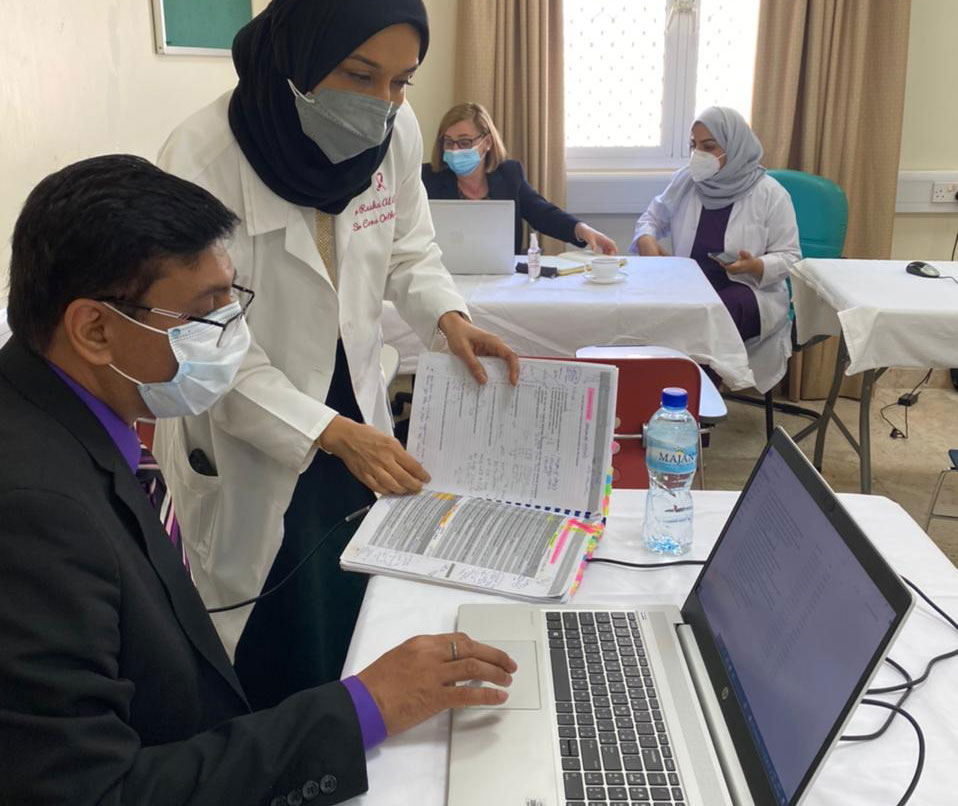
Introduction: Improving cancer data collection and initiating the Basmah initiative
The Ministry of Health and Prevention in United Arab Emirates (UAE) established the UAE national cancer registry to gather comprehensive data on cancer diagnoses among UAE residents. This registry has played a pivotal role in informing the National Cancer Control Programme and introducing the Basmah initiative, which provides coverage for breast, colorectal and cervical cancers under the essential basic package in the mandatory health insurance scheme.
Context: Addressing the growing cancer burden
With its comprehensive government-funded health services, UAE is committed to providing high quality healthcare to its population. However, noncommunicable diseases (NCDs), including cancer pose significant health challenges in the country. Acknowledging the gravity of the situation, UAE's national agenda places a strong emphasis on preventive medicine and strives to reduce the burden of cancer, ensuring longer and healthier lives for its citizens. As part of these efforts, the establishment of a cancer surveillance system, specifically a population-based cancer registry, is vital for effectively monitoring and comprehending the evolving cancer burden over time, based on unbiased and accurate data obtained from various sources.
The population-based cancer registry serves as a critical component of the comprehensive cancer control programme in UAE. It plays a pivotal role in providing an impartial and comprehensive overview of the cancer burden within the population, allowing for a deeper understanding of its dynamics over time. This registry systematically collects cancer incidence data from diverse sources, including hospitals, pathology laboratories and death certificates. By aggregating and analyzing this information, the registry provides a reliable and unbiased portrayal of the overall cancer landscape in the country. This data-driven approach enables healthcare authorities and policymakers to make informed decisions and implement targeted strategies to effectively address the challenges posed by cancer in UAE.
UAE national cancer registry: Comprehensive data collection and analysis
The UAE national cancer registry was established in 2014 by the Ministry of Health and Prevention Statistics and Research Center. It is responsible for collecting, processing and analyzing complex data on all in situ and invasive cancer cases diagnosed among UAE residents. The registry collects demographic information, cancer type, stage, direct treatment and follow-up plans from central cancer registries and medical facilities. Data collection occurs through medical record abstraction or electronic reporting, involving hospitals, primary healthcare centers, clinics, pathology laboratories, treatment facilities and other medical institutions. The central registry consolidates the information into individual cancer case records and annually submits a subset of its data to the national cancer registry. Additionally, the registry enhances data quality by linking it with national databases, such as death records, treatment abroad information, health insurance claims files and other relevant data sources.
To streamline the process of cancer reporting, the UAE national cancer registry has implemented a system for automating electronic data exchange. This includes the development of a web-based enterprise data warehouse, which facilitates the automation of data collection, simplifies data cleaning procedures, enables efficient data extraction and assists in the generation of reports. Furthermore, the UAE national cancer registry collaborates closely with local health authorities to ensure the compatibility and comparability of cancer incidence and death data, ultimately contributing to the publication of annual data and reports that provide valuable insights into the cancer landscape in UAE.
Challenges and lessons learnt: Strengthening expertise and best practices
The lack of technical expertise initially posed a challenge to collecting and analyzing high quality information. To address this, the Ministry of Health and Prevention hired qualified personnel, including certified tumour registrars, clinical coders and an epidemiologist to ensure compliance with international standards. Collaboration with organizations like WHO and the International Agency for Research on Cancer facilitated training opportunities for healthcare providers and registry staff, enabling them to extract data according to international standards and uphold best registry practices.
Impact: Guiding cancer control measures
The UAE national cancer registry plays a vital role in monitoring the cancer burden in the country, prioritizing effective cancer control strategies, developing cancer plans, implementing action plans and evaluating cancer programmes. For instance:
Analysis of registry data revealed that breast, colorectal and thyroid cancers are the most common types across UAE, with cancer being the third leading cause of death. This information has been utilized by the UAE National Cancer Control Programme and local health authorities to educate and empower citizens in preventing and controlling breast and colorectal cancer.
The Basmah initiative, introduced by the Dubai Health Authority in December 2017, provides coverage for breast, colorectal and cervical cancers under the essential basic package in the mandatory health insurance scheme. This coverage includes screening, treatment and care, extending beyond the maximum coverage provided under the essential basic package.
By establishing the UAE national cancer registry and leveraging its data, UAE has made significant strides in understanding and combating the burden of cancer, ultimately improving cancer control measures and healthcare outcomes for its population.
Next steps: Enhancing cancer data collection and control measures in UAE
UAE's next steps in enhancing cancer data collection and control measures include strengthening collaboration and partnerships with international organizations, such as WHO and the International Agency for Research on Cancer, as well as local health authorities and research institutions. Continuous improvement of data collection will be achieved through training, quality assurance measures and expanding data sources. Emphasizing advanced technologies like electronic data exchange systems and integrating the national cancer registry with other databases is a priority. Strengthening cancer control strategies includes analyzing registry data, developing educational campaigns and evaluating existing programmes. Findings will be disseminated through regular reports to improve overall healthcare outcomes for the population. These steps aim to reinforce cancer data collection and control measures in UAE, resulting in enhanced cancer prevention, diagnosis, treatment and overall healthcare outcomes.
Story originated in 2019.


